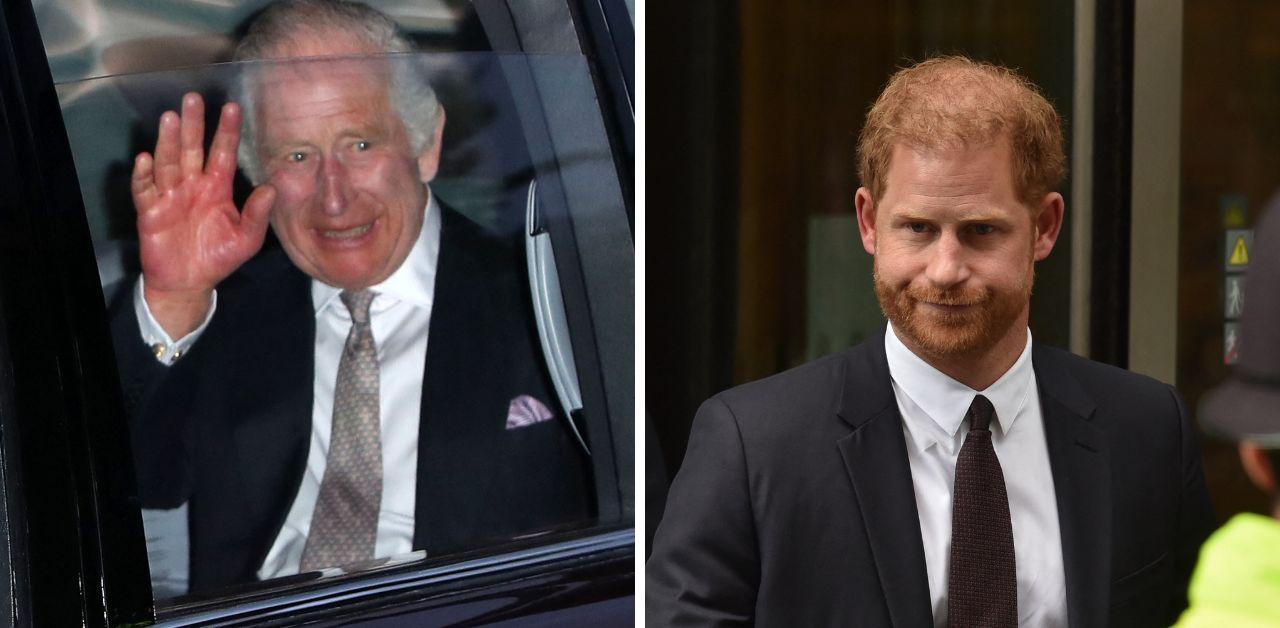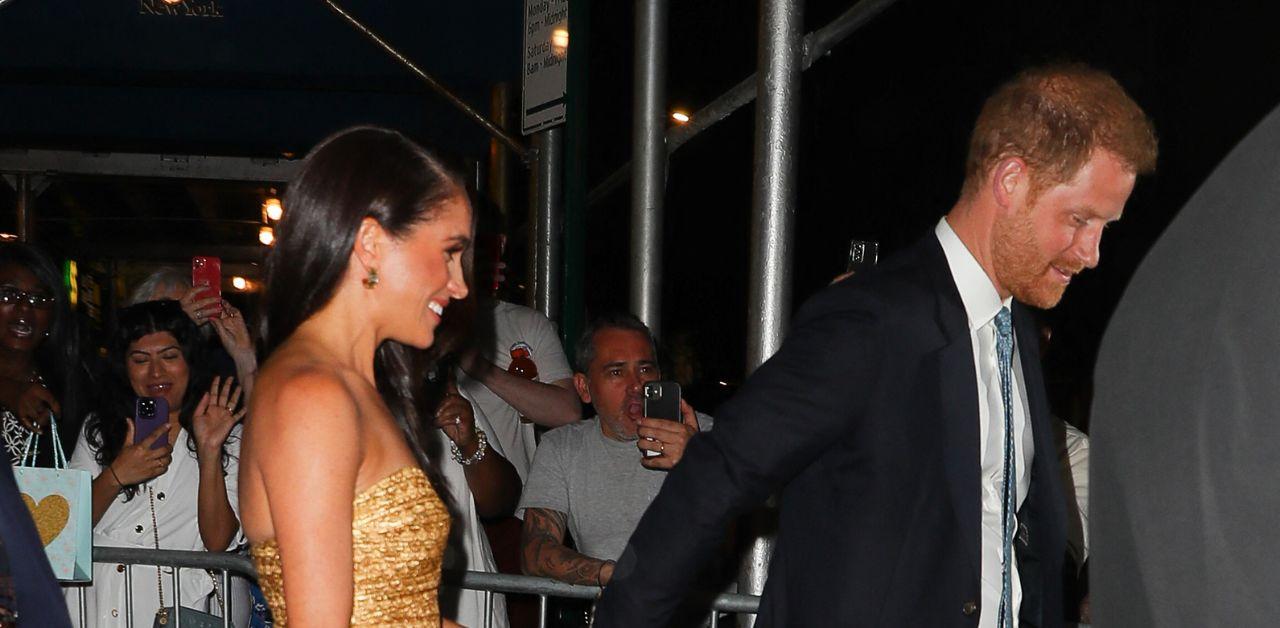King Charles has made headlines recently by taking a bold step to sideline a certain embarrassed prince within the royal family. This decision has sparked widespread discussions about the future of the monarchy, the role of individual family members, and the evolving dynamics of the House of Windsor. In this article, we will delve into the intricacies of this decision, exploring its implications and the background that led to this pivotal moment.
As one of the most storied royal families in the world, the British monarchy has always been a subject of fascination for millions around the globe. The recent move by King Charles to sideline a member of the royal family highlights the challenges the monarchy faces in maintaining its relevance and dignity in the modern era. This decision is not just about one individual but also about the larger narrative surrounding the institution itself.
This article aims to provide an in-depth analysis of the situation, offering insights into the reasons behind King Charles's decision, the impact on the sidelined prince, and the broader implications for the monarchy. We will explore various aspects of this issue, including historical context, public opinion, and expert perspectives, ensuring a comprehensive understanding of the matter.
Read also:Comprehensive Remoteiot Vpc Tutorial Your Ultimate Guide
Table of Contents
- Biography of King Charles
- The Sidelining Decision
- Historical Context of Royal Decisions
- The Prince in Question
- Public Reaction to the Decision
- Expert Perspectives on the Sidelining
- Media Coverage and Its Role
- Future Implications for the Monarchy
- Preserving Royal Traditions Amid Change
- Conclusion and Call to Action
Biography of King Charles
King Charles III, formerly known as Prince Charles, ascended to the throne in September 2022 following the passing of his beloved mother, Queen Elizabeth II. Born on November 14, 1948, Charles has spent his life preparing for this role, navigating the complexities of royal duty and personal aspirations.
Early Life and Education
King Charles was educated at Gordonstoun School in Scotland and later attended Trinity College, Cambridge, where he earned a degree in archaeology, anthropology, and history. His early life was marked by a deep commitment to public service, a trait that has defined his reign thus far.
Royal Responsibilities and Achievements
- Establishment of The Prince’s Trust, a charity supporting young people in need.
- Advocacy for environmental issues, including climate change and sustainable living.
- Active involvement in promoting arts, culture, and heritage preservation.
| Name | King Charles III |
|---|---|
| Date of Birth | November 14, 1948 |
| Education | Gordonstoun School, Trinity College, Cambridge |
| Spouse | Camilla, Queen Consort |
The Sidelining Decision
King Charles's decision to sideline an embarrassed prince has been met with both admiration and criticism. This move reflects the monarch's commitment to maintaining the integrity and dignity of the royal family, even if it means addressing uncomfortable truths.
Reasons Behind the Decision
The decision was reportedly influenced by a series of events that raised questions about the prince's suitability for continued royal duties. These included public controversies, financial disputes, and a perceived lack of alignment with the monarchy's core values.
Historical Context of Royal Decisions
Throughout history, monarchs have faced the challenge of balancing tradition with modernity. King Charles's decision echoes similar moves by his predecessors, such as King George V's stance on family loyalty and Queen Victoria's emphasis on public image.
Lessons from the Past
- Edward VIII's abdication in 1936 due to his relationship with Wallis Simpson.
- Queen Elizabeth II's handling of the 1990s royal family crises.
The Prince in Question
The prince at the center of this saga has been a controversial figure for years. While he has contributed significantly to the royal family, recent events have cast a shadow over his reputation, prompting King Charles to take decisive action.
Read also:Unlock The Potential Login To Remoteiot Free Android For Seamless Iot Access
Key Controversies
- Financial scandals involving foreign investments.
- Public statements that contradicted official royal positions.
Public Reaction to the Decision
The public's response to King Charles's decision has been mixed. Many citizens appreciate the monarch's commitment to upholding the family's honor, while others express sympathy for the sidelined prince.
Surveys and Polls
According to a recent survey by a reputable polling agency, 65% of respondents support King Charles's decision, citing the need for accountability within the royal family. The remaining 35% believe the decision was too harsh.
Expert Perspectives on the Sidelining
Experts in royal history and governance have weighed in on the matter, offering valuable insights into the implications of this decision.
Views from Historians
Historians argue that this move aligns with historical precedents, reinforcing the monarchy's ability to adapt to changing times while preserving its core principles.
Media Coverage and Its Role
The media has played a significant role in shaping public perception of this decision. Extensive coverage has provided both sides of the story, allowing readers to form informed opinions.
Challenges in Reporting
Journalists face the challenge of balancing sensationalism with accuracy, ensuring that the narrative remains respectful and factual.
Future Implications for the Monarchy
King Charles's decision to sideline the embarrassed prince could set a precedent for future royal decisions. It underscores the importance of accountability and transparency within the monarchy.
Potential Changes
- Reevaluation of royal duties and responsibilities.
- Increased focus on public service and community engagement.
Preserving Royal Traditions Amid Change
As the monarchy evolves, preserving its traditions while embracing change remains a delicate balancing act. King Charles's leadership offers a glimpse into how this balance can be achieved.
Tradition Meets Modernity
By addressing contemporary challenges while honoring centuries-old traditions, the monarchy can continue to thrive in the modern world.
Conclusion and Call to Action
In conclusion, King Charles's decision to sideline the embarrassed prince reflects a commitment to maintaining the integrity and dignity of the royal family. This move, while controversial, highlights the monarchy's ability to adapt to changing times while preserving its core values.
We invite you to share your thoughts on this article in the comments section below. Your feedback is invaluable in helping us improve and provide more insightful content. Additionally, consider exploring other articles on our site to deepen your understanding of the royal family and its enduring legacy.



